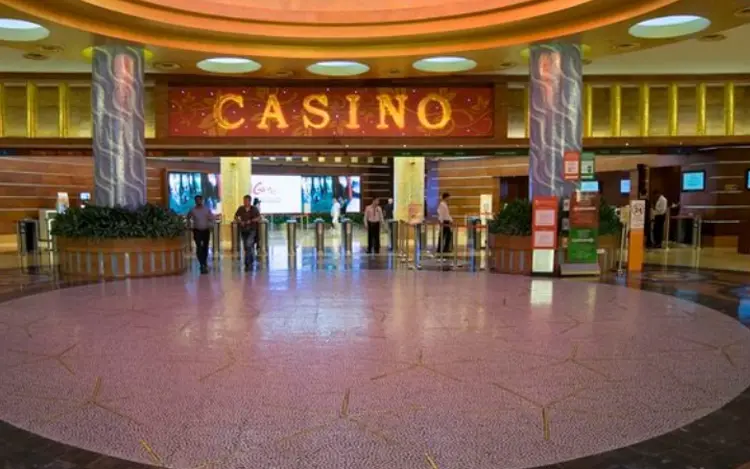Casinos have long been more than just places of glitz, glamour, and games of chance. They are intricate engines of local economies, spinning reels not only for players but also for communities, governments, and businesses that surround them. From Las Vegas to Macau, and from seaside resorts in Europe to smaller regional towns, the presence of a casino has often acted as a catalyst for financial transformation. The influence is not confined to physical establishments either, as the swift expansion of online casino sites has introduced a new digital frontier with equally compelling consequences.
When analysing their effect, one must look beyond the bright lights and jackpots. Casinos serve as employers, tax contributors, and tourism magnets. They stimulate a range of secondary industries, from hospitality to retail, while also shaping public infrastructure and cultural offerings. Yet, as with any powerful economic force, their impact is a mixture of promise and complexity. Understanding how casinos influence local economies across the globe offers both a fascinating study and a persuasive reminder of their dual role as both entertainment venues and financial drivers.
Employment: The House That Jobs Built
One of the most direct ways casinos support local economies is through employment. A single large casino can provide thousands of jobs, ranging from dealers and hospitality staff to security, IT, and managerial roles. These positions often offer competitive wages and career progression, which can uplift entire households and improve community stability.
The reach extends well beyond the casino walls. Local suppliers, food distributors, and maintenance companies benefit from long-term contracts, creating a ripple effect of employment. Taxi drivers, tour operators, and small businesses near casino districts see increased demand, proving that the presence of a casino can spread prosperity across multiple layers of the community. Such job creation is particularly significant in regions where alternative employment opportunities are limited, making casinos a lifeline for local economic resilience.
Tax Revenue: When the Chips Fall for Public Budgets
Casinos contribute substantial sums to government treasuries through licensing fees, gaming taxes, and corporate levies. These revenues are often earmarked for public services such as education, healthcare, and infrastructure, meaning that each spin or hand of cards indirectly funds schools, hospitals, and road projects. In some jurisdictions, casino taxation has been strategically positioned to offset other levies, easing the burden on residents while ensuring steady public investment.
The dependability of casino revenue can help local governments weather economic storms. For example, tourist downturns or industrial slowdowns may hit other sectors hard, but casinos often remain resilient thanks to their global appeal. This makes them reliable contributors to fiscal policy, a fact that has not gone unnoticed by lawmakers across continents. Of course, such reliance requires balance, as overdependence on casino tax can leave municipalities vulnerable to regulatory changes or market shifts.

Tourism Glittering Gateways to Global Visitors
Tourism: Glittering Gateways to Global Visitors
Casinos have a magnetic pull for tourists, transforming otherwise quiet towns into bustling hubs of international attention. Cities such as Monte Carlo, Las Vegas, and Macau have become synonymous with luxury and entertainment, drawing millions of visitors each year who spend not only at the gaming tables but also in hotels, restaurants, theatres, and shops. The economic spill-over is enormous, as a thriving tourism sector requires vast networks of service providers, entertainers, and cultural attractions.
For smaller destinations, even a single casino resort can put a town on the map, attracting visitors who might never have otherwise set foot there. The creation of these entertainment hubs fosters additional investment in airports, motorways, and urban planning, amplifying the long-term benefits. Tourism generated by casinos often brings an international flair, boosting foreign currency inflows and elevating the profile of a region far beyond its borders.
Community Development: Beyond the Betting Tables
Casinos often engage in philanthropic and cultural contributions, funnelling part of their profits into community projects. This can include funding arts festivals, sports facilities, and youth programmes, which in turn strengthen social cohesion. By positioning themselves as community partners, casinos can soften criticisms and highlight the positive ripple effects of their presence.
Furthermore, the infrastructure improvements that accompany major casino developments are not limited to visitors. Locals benefit from upgraded public transport, new entertainment venues, and an enhanced sense of civic pride. The aesthetic transformation of casino districts often creates urban spaces that are safer, livelier, and more attractive for residents and tourists alike. This demonstrates that casinos, when managed responsibly, can extend their role beyond mere profit-making enterprises to become cornerstones of regional progress.
Online Casino Sites: The Digital Economy’s High Rollers
The economic influence of casinos is no longer confined to bricks-and-mortar establishments. Online casino sites have revolutionised how gaming revenue circulates, creating a global industry that transcends geography. These digital platforms employ skilled professionals in software development, cybersecurity, marketing, and customer support, often generating high-value employment opportunities that are in demand across modern economies.
Moreover, the online model widens tax bases by reaching players who may never set foot in a physical casino. Regulators in Canada and other nations have embraced licensing frameworks that ensure revenue from online casino sites contributes to public budgets just as effectively as their land-based counterparts. In addition, these platforms stimulate secondary markets such as payment processing, advertising, and affiliate industries, weaving themselves seamlessly into the fabric of the digital economy.
While they may lack the tourism pull of a grand casino hall, online casinos offer global accessibility and convenience. Their role in shaping modern financial ecosystems demonstrates how technological innovation continues to redefine the gambling sector’s economic impact.

Challenges Balancing the Ledger of Opportunity and Risk
Challenges: Balancing the Ledger of Opportunity and Risk
While the benefits of casinos to local economies are considerable, it is important to recognise the challenges. Overreliance on gaming revenue can leave communities vulnerable to downturns in consumer spending or regulatory tightening. There are also debates around social concerns, which can carry indirect economic costs if left unaddressed.
However, with robust regulation, responsible gaming initiatives, and diversified investment strategies, many regions have successfully maximised the benefits while mitigating the risks. Transparency in revenue distribution and corporate accountability remain critical in ensuring that casinos live up to their potential as responsible partners in economic development. By approaching the industry with a balanced perspective, governments and communities can enjoy long-term stability rather than short-term gains.
Conclusion: The Global Jackpot of Economic Influence
The story of casinos and their impact on local economies is one of dazzling opportunity intertwined with careful responsibility. From bustling metropolises to quiet coastal towns, casinos inject energy into job markets, public finances, and tourism flows. They reshape communities, support infrastructure, and even provide cultural enrichment, all while maintaining their reputation as entertainment giants. The rise of online casino sites has expanded this influence into the digital sphere, proving that the economic role of casinos is as adaptable as it is enduring.
What makes casinos unique is their ability to serve both as playgrounds of chance and as engines of certainty for local economies. Their contribution stretches beyond the gaming tables, embedding itself in the very foundations of civic life, from education to healthcare and cultural identity. Yet, as with any powerful tool, the true success of casinos lies in how communities and governments harness their potential.
As the world continues to evolve, the economic presence of casinos, both physical and digital, will remain an intriguing and essential force. To appreciate their full impact is to see them not only as entertainment providers but also as global economic players with the power to transform lives and landscapes.
For those seeking further insights into this fascinating intersection of gaming and finance, Gambling Zone is the place to go for more information like this.







